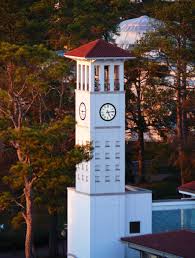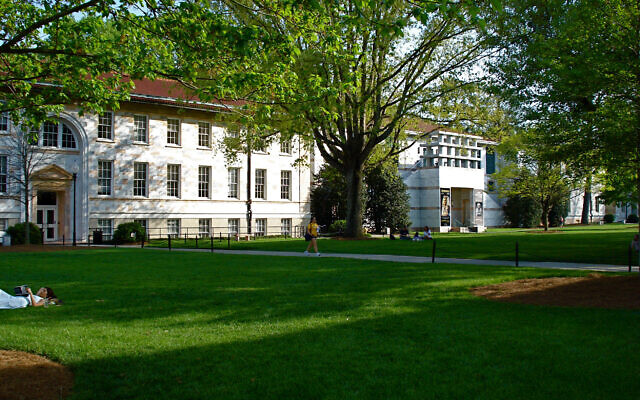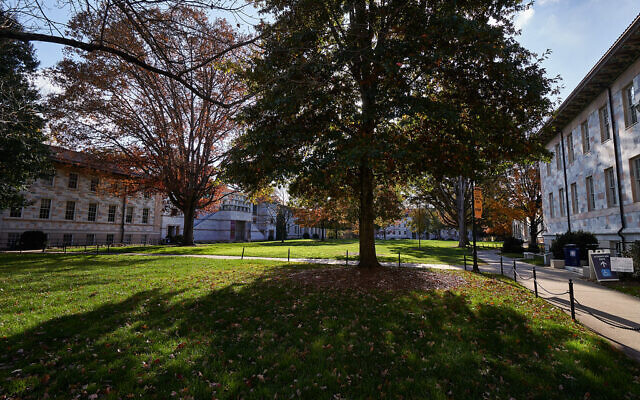Emory Announces Major Changes in Fall Plans
Emory shifts gears due to the increased rate of COVID-19 cases and hospitalizations in Atlanta since the university’s original plan was issued in June.
Dave Schechter is a veteran journalist whose career includes writing and producing reports from Israel and elsewhere in the Middle East.
One month before the start of classes, Emory University has announced major changes for the fall 2020 semester, significantly reducing the number of undergraduate students living on campus and shifting most classes online.
“Based on the current COVID-19 conditions in Atlanta, we have made very difficult decisions that will affect all members of our community but are necessary to create a safe learning environment while upholding our principles,” said a statement issued July 17 by university president Claire Sterk and president-elect Gregory Fenves, who takes office Aug. 1.
The Emory Wheel student newspaper reported that, according to Interim Provost Jan Love, only about half of the students are expected to return and reported that the university “expects to lose around $80 million, with no expected employee reductions.”
On-campus housing will be available only to first-year and new transfer students, international students, undergraduates receiving scholarships conditioned on living on-campus and students with specific housing needs, pending review by the university. Not all residence halls and buildings will be used.

“On-campus classes will be limited to: courses that must be taken in-person to make meaningful progress toward graduation in the coming academic year (this will predominantly apply to seniors), international students, select first-year seminars, and a small number of courses that mandate in-person labs, performance and studio time, academic research or necessitate campus-specific library access,” read the statement from Sterk and Fenves. “Sophomores, juniors and seniors not included in the categories listed above will have remote-only learning this fall.”
“This decision will be revisited for the spring semester and will be contingent upon a decrease in COVID-19 prevalence in Atlanta and the ability of Emory community members to practice safety measures this fall,” said the statement.
Since announcing in June that undergraduates were expected to begin in-person classes Aug. 19, the rates of COVID-19 cases and hospitalizations in Atlanta have increased.
Students not covered by the on-campus categories “should stay where they are and not travel to Atlanta for the fall semester,” the statement said. “All faculty and students may elect remote academic options, and in this regard, we are encouraging everyone to make their own decisions for their Emory fall semester experience.”
Recognizing the financial impact that COVID-19 has had on family finances, “Emory will be holding undergraduate tuition at 2019-2020 rates for the coming years,” negating a planned 4 percent increase, while tuition for graduate and professional programs will remain at 2020-21 levels. “In addition, families can request to have their financial aid reassessed if they have experienced changes in economic status” since filing the Free Application for Federal Student Aid, or FAFSA.
“Graduate and professional programs are being addressed on a case-by-case basis with online classes offered for those courses that do not necessitate in-person instruction,” the statement said.

“All undergraduate and graduate student clubs and activities, including fraternities and sororities, will be held virtually for the fall semester. Off-campus events will not be allowed and travel associated with student groups will be prohibited,” the statement said. Additionally, Emory will not compete in Division III athletics, club sports, or intramural through January, and practices for all teams will be restricted “until public health conditions allow for safe participation for all of our student-athletes.”
Emory previously had issued a policy that face coverings will be required on campus for students, faculty and staff.
Those undergraduate and graduate students returning must be tested for COVID-19 before returning to campus. Rapid testing, with results generally available in 20 to 30 minutes will be done through Peachtree Intermediate Care. By returning to campus, students, faculty and staff consent to cooperate with COVID-19 contact tracing. The Emory Conference Center Hotel will be used to quarantine students exposed to someone who tests positive for COVID-19 and to isolate those testing positive themselves.






comments